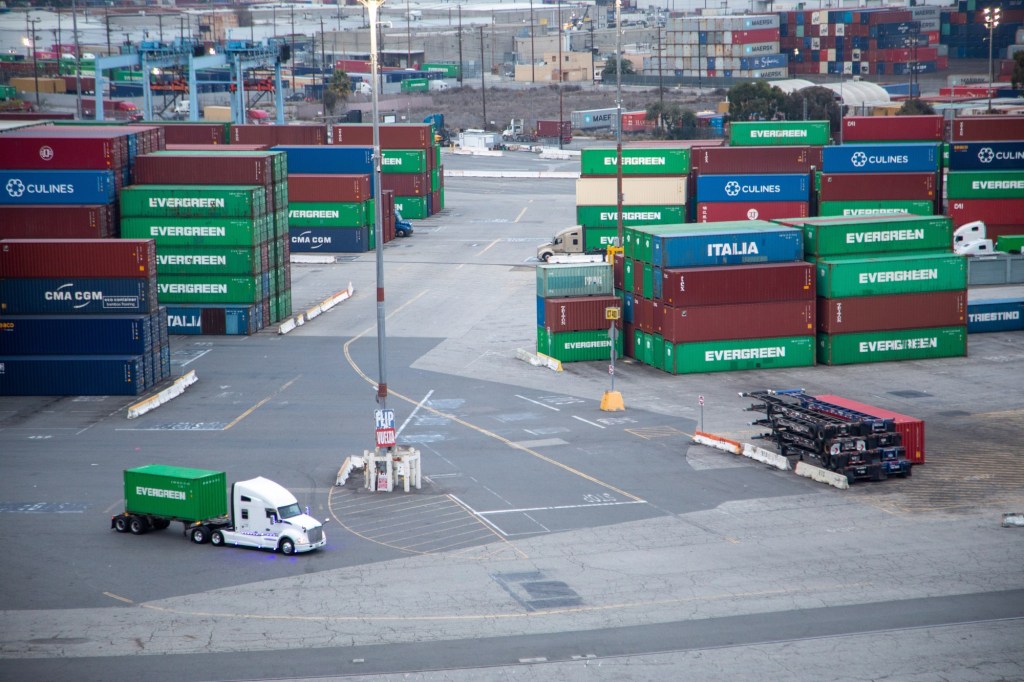The Port of Los Angeles reported another dip in cargo numbers for the month of July, continuing a downward trend that has been consistent for 2023.
Altogether, the port moved 684,291 twenty-foot equivalent units — or TEUs, the industry’s standard measurement — last month. That was an overall 27% decline in all TEUs compared to July 2022.
Cargo imports were down by 25% in July compared to the same month last year, which saw an all-time record for incoming cargo for July.
Imports totaled 364,208 TEUs, with exports at 110,372 TEUs, an increase of 6% compared to last year.
Cargo was also down in July at the Port of Long Beach.
“Global trade has eased,” said port Executive Director Gene Seroka in a written comment, “as warehouse inventories of retailers and manufacturers remain elevated.”
Seroka did, however, sound an optimistic note.
“American consumers are continuing to spend,” he said, “and are likely to find more discounted items this year as we move into fall fashion and year-end holiday season.”
But concerns about the U.S. economy continue to be a factor with inflation, higher interest rates, and prices for cars, gasoline and home utility bills on the rise.
Consumers also are shifting some of their spending to entertainment and travel rather than goods, according to a report released this month by the neighboring Port of Long Beach, where cargo numbers dipped last month by 46.4% from July 2022.
Contributing to the downward cycle were shifting cargo routes and diverted cargo during what was a 13-month negotiation period. Terms for a tentative contract were reached in June. That tentative deal is awaiting final approval by the International Longshore and Warehouse Union and the Pacific Maritime Association.
The economy in China — where most of the goods come from — has also been experiencing slower growth than expected, with exports dipping partly because of falling demand.
China exports declined 12.4% in June from a year…
Read the full article here







